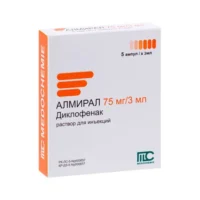Description
Nurofen UltraCap (Ibuprofen) Soft Capsules 200 mg
Ingredients
- Each soft capsule contains 200 mg of ibuprofen.
Dosage
- For adults and children over 12 years: Take 1-2 capsules with water, then if necessary, 1-2 capsules every 4 hours. Do not exceed 6 capsules in 24 hours.
Indications
- Nurofen UltraCap is indicated for the relief of mild to moderate pain such as headaches, dental pain, period pain, muscular pain, and backache.
Contraindications
- Do not take Nurofen UltraCap if you have a history of gastrointestinal bleeding, are allergic to ibuprofen, or are in the third trimester of pregnancy.
Directions
- Swallow the capsules whole with water. Do not chew or crush them. Take with or after food to reduce the risk of stomach irritation.
Scientific Evidence
- Ibuprofen, the active ingredient in Nurofen UltraCap, is a nonsteroidal anti-inflammatory drug (NSAID) that works by inhibiting the production of prostaglandins, which are chemicals in the body that cause inflammation, pain, and fever.
- Clinical trials have shown that ibuprofen is effective in reducing pain and inflammation in various conditions, making it a widely used medication for pain relief.
Additional Information
- It is important to follow the recommended dosage and not exceed the stated dose to avoid potential side effects such as gastrointestinal irritation or ulcers.
- Consult a healthcare professional before taking Nurofen UltraCap if you have any underlying medical conditions or are taking other medications to avoid drug interactions.





